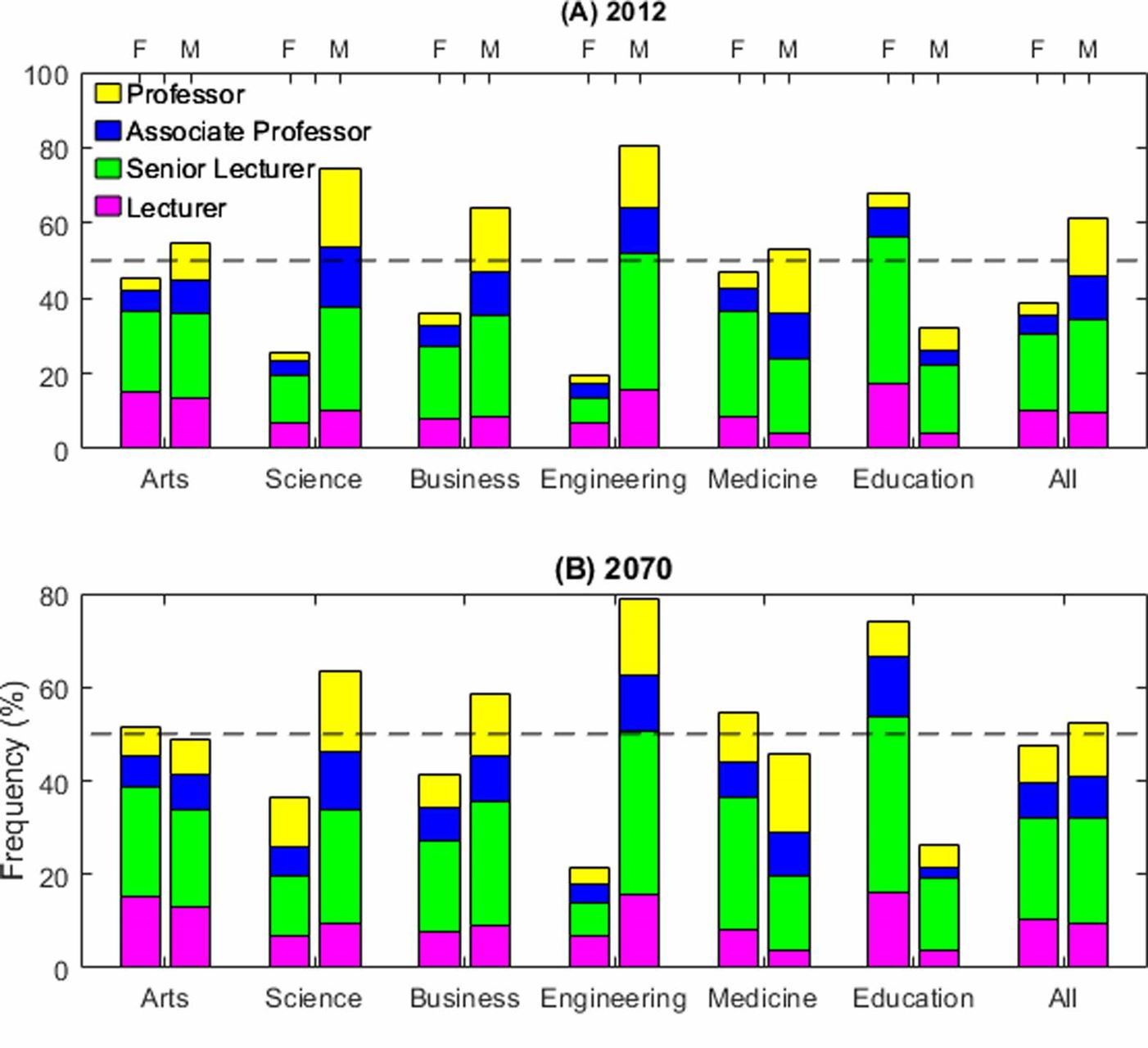An article published today in PLOS One uses NZ university data to show that female academics earn $400,000 less over their careers than their male counterparts, after adjusting for covariates. The results and their implications have featured prominently in NZ's major news outlets, including RNZ, Stuff, and the Herald. Audio from RNZ's Morning Report (short) and Nine to Noon (in depth) is also available.
The analysis separates out fields of academia, showing one of the largest gender gaps occurs in science. That gap will not close by 2070 under current conditions.

Expert commentary has been compiled by the Science Media Centre. Included in it are these comments by President Troy Baisden representing NZAS.
“Anyone who counts the number of men and women along the hallways of New Zealand’s research institutions or speaking at conferences, and compares their job titles, will tend to suspect we have lingering problems with gender equity. Yet, many remain blind to the issue, and assume we have a meritocracy.
“Institutions, including the New Zealand Association of Scientists, have already observed enough evidence in the science workforce to raise concerns about our problems with gender and other diversity issues. The study by Brower and James massively sharpens our view of the problem, and shows its lifetime impact. An extension of their powerful analysis shows that, with current settings compared, there will be little improvement in most areas of academia by 2070.
“Simply put, New Zealand’s academic and research hierarchy does not appear to be the meritocracy it claims to be. Those who start out ahead appear to stay ahead.
“The evidence for inequity in salaries and promotion provided in this work may also extend to the resources required to be successful in research. Further, gender is only the most easily quantified diversity and equity challenge. These results suggest that underrepresentation of Māori and Pasifika in academia also need action to correct inequity.
“Ultimately, these diversity issues matter because audiences and the public may dismiss evidence from research when they can’t see their own faces or stories represented among the experts speaking on an issue.”
Former NZAS President and "Science is Sexist" author Nicola Gaston also featured in commentary, and Stuff's coverage profiled former NZAS Councillor Natalie Plank.
Having these clear results added to the growing evidence and analysis on gender and equity issues should help us move toward solutions that fix this problem.
PS. For those interested in an academic perspective on the methods and data, the University of Auckland's Prof Thomas Lumley has weighed in with a StatsChat blog post.